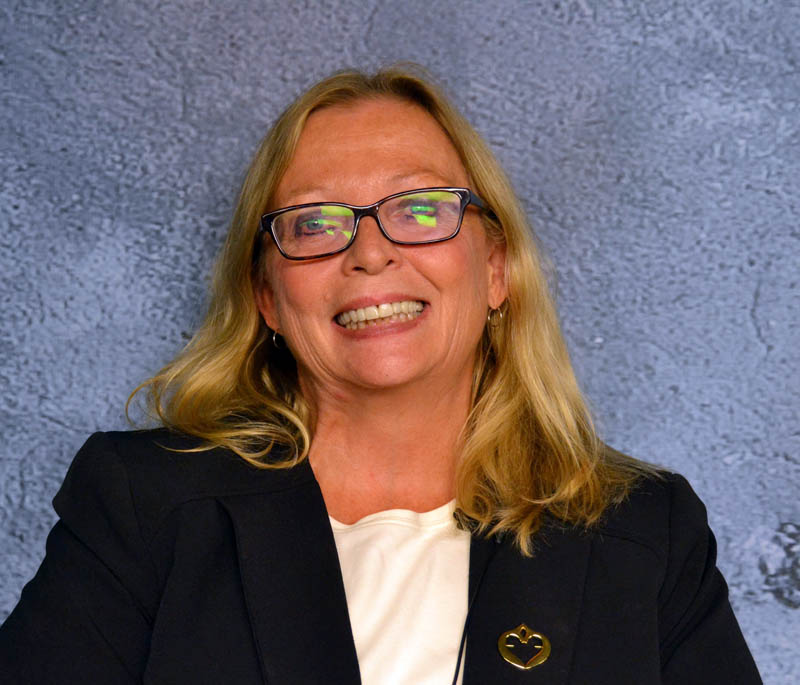
State Rep. Holly Stover (Maia Zewert photo, LCN file)
State Rep. Holly Stover, D-Boothbay, is sponsoring a bill that aims to increase access to substance use treatment in Maine.
L.R. 1235, “An Act To Address the Lack of Access to Treatment for Substance Use Disorders,” is in the request stage — L.R. stands for legislative request — and does not yet have an L.D., or legislative document, number, which will allow the public to track its progress online. The legislative session began Dec. 2.
Stover has experience with addiction services as the program director of the Boothbay Region Community Resource Council’s addiction outreach program.
She has seen the COVID-19 pandemic exacerbate the preexisting opioid epidemic, partially due to isolation and partially due to changes in the delivery of services.
Many support groups have moved online, making it difficult for some people to access their services. Some residential treatment centers are struggling financially because physical distancing limits the number of patients they can take in, according to Stover.
Stover’s bill seeks to increase the rate of MaineCare reimbursement to outpatient and residential providers by 25% and to extend the length of treatment MaineCare will cover.
“Current (reimbursement) rates aren’t sufficient to meet the cost of running,” Stover said. “It’s hard to stay in business when you’re losing money.”
Stover’s work in addiction outreach has shown her that the early stages of recovery can be extremely difficult, and many people need more time than MaineCare currently covers.
The bill would extend the length of stay for inpatient detox care — the first stage of recovery, when patients stop using a substance and require medical supervision — from 28 days to 40 days.
After the detox stage, patients can move into a longer residential treatment program. Stover’s bill would increase the length of that stay from 30 days to 60 days.
The bill would also extend coverage for staying in a halfway house from three months to six months.
“It allows people to have a stronger footing in their early recovery,” Stover said. “People need more time to recover, and more time to plan their outpatient needs. They need to find counselors, support, and meetings.”
The bill is still being drafted, and legislative staff will prepare a fiscal note analyzing its financial impact.
A representative of MaineHealth expressed support for the increase in reimbursement rates. MaineHealth is the parent organization of LincolnHealth and of Mid Coast Hospital, which operates the Addiction Resource Center in Damariscotta.
“One of our top priorities at MaineHealth is to create a sustainable behavioral health infrastructure, and part of the challenge right now is that rates have not changed for a decade,” said Katie Fullam Harris, chief government affairs officer for MaineHealth. “We would strongly support increasing substance use treatment rates to ensure that they are successful and sustainable for the future.”






